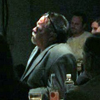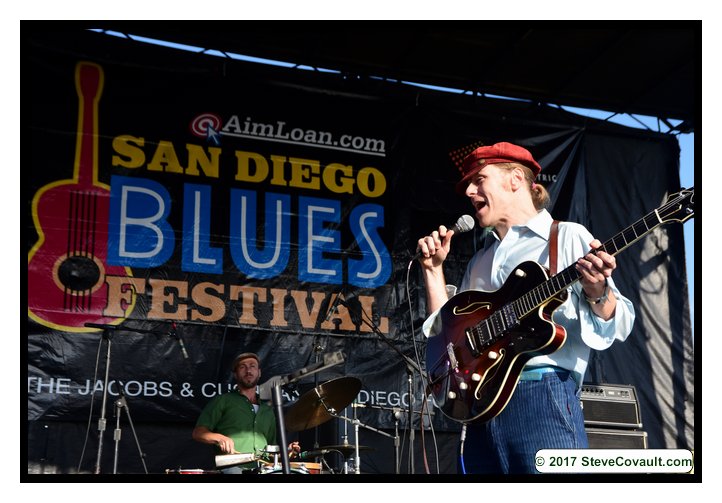Normal 0 false false false EN-US X-NONE X-NONE /* Style Definitions */ table.MsoNormalTable {mso-style-name:"Table Normal"; mso-tstyle-rowband-size:0; mso-tstyle-colband-size:0; mso-style-noshow:yes; mso-style-priority:99; mso-style-parent:""; mso-padding-alt:0in 5.4pt 0in 5.4pt; mso-para-margin-top:0in; mso-para-margin-right:0in; mso-para-margin-bottom:10.0pt; mso-para-margin-left:0in; line-height:115%; mso-pagination:widow-orphan; font-size:11.0pt; font-family:"Calibri","sans-serif"; mso-ascii-font-family:Calibri; mso-ascii-theme-font:minor-latin; mso-hansi-font-family:Calibri; mso-hansi-theme-font:minor-latin;} The Jan. 27 double-bill concert at UC San Diego’s the Loft was one of event programmer Brian Ross’s more strange, yet ultimately satisfying pairings in recent years. Opening act d. Sabela Grimes combined choreography, beats, vocals and spoken word into a unified statement and the headlining Abbey Rader Quartet blew the roof off the joint with exuberant free-improvising.
d. Sabela Grimes
Grimes began his solo set with a fairly complex backing track of stuttering beats and a layered children’s choir while he danced and gesticulated before crooning in a Marvin Gaye style. That morphed into "Experiment Earth," which featured altered loops of comedian George Carlin and elements of rap with an ingenious blend of pre-recorded and manipulated sounds beneath his own vocals.
Especially interesting was the bluesy "Trouble," which had some killer, Delta-esque samples, and the lovely, mostly sung, "Touch Me," which served as a prelude to a couple of songs that documented the short romantic lifespan of a failed relationship, "Philly Story," and "Love, Love."
I found his multi-layered instrumental and vocal arrangement on “How’s Life,” reminding me of "Innervisions"-era Stevie Wonder – a huge compliment in my book.
Abbey Rader Quartet + Mark Dresser
Rader is a free-jazz drum veteran with some heavy credentials and the band of San Diego improvisers he assembled, including bassist Kyle Motl, and reed men Peter Kuhn and Drew Ceccato went right for the throat in a program of loosely written freebop tunes based on the Buddhist concept of the Four Noble Truths.
SoundDiego
Music. Community. Culture.
Motl began “Suffering,” with powerful plucking that locked in tightly with Rader’s pinpoint ride cymbal pings and vituperative skins as the twin-tenors of Kuhn and Ceccato wailed, screamed, and wrapped around each other. Kuhn sported a gruff and grainy sound reminiscent of Archie Shepp while Ceccato’s aesthetic seemed to create tension through nervous repetition. Kuhn picked up a bass clarinet and released a fat, dark vibrato before Dresser took the stage suddenly to activate a multi-bass maelstrom that should have set off fire alarms everywhere in the general vicinity. It was wild and ecstatic and one could almost see the bandstand lifting.
"Desire," began as a pensive duet between bass and drums, Motl generating gorgeous, dripping whole notes over Rader’s skitterish brushes. Kuhn’s hoarse screeching tenor and Ceccato’s slow warbling alto ground against each other in a brutal dance of multiphonics.
On "Stopping Suffering," Rader’s handbells and malleted toms buttressed a platform for Kuhn’s Dolphy-esque bass clarinet runs while Ceccato went on a trill-a-thon and Motl sawed eerie overtones near the bridge of his bass.
"Enlightenment," the closer, seemed to imply that knowledge doesn’t come without a visceral sacrifice. Riding along the stream of Rader’s cymbal articulations and Motl’s furious power walk, the dual saxophonists kicked a hornet’s nest of seething intensity until everyone but Motl dropped out. The young virtuoso then proceeded to deliver an amazing solo of double harp-harmonics and pizzicato wizardry -- sounding like an eerie blend of Fred Hopkins and Lenny Breau. Then it was all freebop caterwaul to take the tune out.
I can’t remember the last time I went to a concert led by a drummer that allowed for no drum solos -- but Rader’s fire and frenzy served as the motor for everything that developed -- I guess he didn’t feel the need for the spotlight. A night of controlled abandon that seared a few brains in the process.

Robert Bush is a freelance jazz writer who has been exploring the San Diego improvised music scene for more than 30 years.




